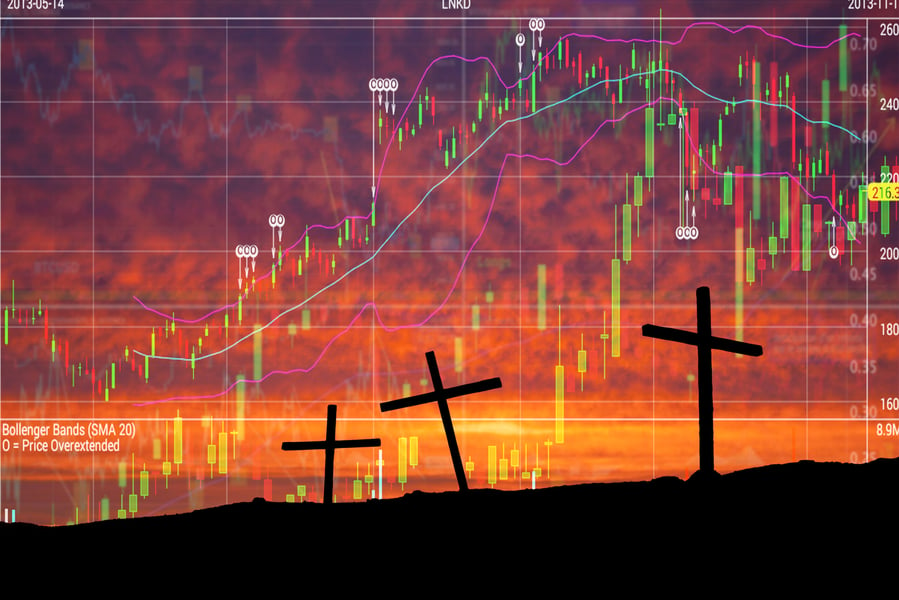

Faith-based investing, one of the oldest niche-investing categories, is being fine-tuned by way of a comprehensive new document from the Vatican that details 24 specific areas of focus for investors and money managers.
The 46-page report published last week, Mensuram Bonam, or Faith-Based Measures for Catholic Investors: A Starting Point and Call to Action, is designed primarily for Catholics and the global network of Conference of Bishops trade organizations. But for financial advisers and investors focused on faith-based investing, the document is being viewed as a significant step forward in helping to define and grow the category.
“It is a big deal, because a lot of people in religious communities will wait to take action until the church provides guidance,” said Robert Netzly, chief executive of Inspire Investing, a financial adviser who follows Biblically responsible investing practices.
“This document will get a lot of institutions and investors off the sidelines and get this kind of faith-based investing into portfolios,” Netzly said. “In recent years, the Vatican has been examining investing and how it aligns with the Catholic faith. This document will be a wake-up call for corporate America, because they can’t just keep pushing the same unbiblical ideologies and expect the church to go along with it.”
Beyond what some might view as standard Catholic-values issues, such as opposition to abortion and pornography, the document highlights 24 areas of focus across four categories, some of which cross into the environmental, social and governance investing space.
Under the heading of “upholding the intrinsic dignity of human life,” the document lists abortion, armaments, nuclear weapons, capital punishment, contraceptives, embryo stem cell research and animal abuse/experimentation.
Under the heading of “avoiding destructive behaviors,” the list of areas to avoid investing in includes addictive substances and services, dehumanizing computer games and toys, and pornography.
Learn the common investing mistakes to avoid here.
The document gets closer to ESG with the following list under the heading “recognizing global and sustainability impacts”: breaches of labor law, corruption, discrimination, human rights violations, violations of the rights of indigenous peoples, totalitarian regimes and unfair business practices.
The final category, “securing environmental protection,” lists threats including climate change, exploitative negative externalities, food availability denied for the most vulnerable, genetic engineering, mining and mineral commodities, and inability to access safe drinking water.
Todd Rosenbluth, head of research at VettaFi, acknowledged the way the faith-based guidelines overlap with many popular ESG themes.
“The irony is that one of the ETF providers made it clear this summer that its removal of the use of the phrase ESG in fund names was the result of the term receiving backlash from conservatives and has become broadly perceived as the antithesis of biblical,” he said. “ESG has become a stand-in for liberalism despite its focus appealing to a broader potential investor base.”
As the details of the document are absorbed across the wealth management industry, fresh perspectives on its full impact will certainly emerge.
Bob Schwartz, senior vice president at Catholic values fund company Ave Maria, said the document will increase investor awareness around faith-based investing, but he doesn’t think it will change the way Ave Maria builds portfolios.
“Regarding some of the specific things mentioned, we have a different focus,” he said. “We’re very focused on pro-life and family values issues, but we’re not screening for climate change.”
John Knowles, president of the Catholic Finance Association, a membership organization for financial professionals and money managers, describes the Vatican document as providing “great clarity for Catholics that want to align their investments with their deeply held beliefs and the Catholic faith.”
“This clearly outlines areas that will be prohibited,” Knowles added. “Now, for Catholics, you have a rock-solid clear source document straight from the Vatican.”
But while the document named for the biblical passage, “for the measure you use will be measured back to you,” offers an outline for the world’s Catholic organizations and 1.3 billion Catholics, the implications are expected to be much broader.
“We think this is something that people of faith will look at because most people of faith are very active in their beliefs but it doesn’t always translate into their investments,” said Will Lofland, director of intermediary distribution at GuideStone Funds, which manages $16 billion worth of faith-based portfolios.
“It will probably also benefit the broader ESG community, because one of the big tenets in Catholic doctrine is common good,” Lofland said. “This document shines a light for a lot of rank-and-file investors on a category they didn’t even know existed, but it shines more light on the idea that people would want to incorporate a particular value or belief into their investments.”
Chris McMahon, founder of Aquinas Wealth Advisors, a devout Catholic who goes to church daily, sees the benefits for both hard-core faith-based investors as well as a broader non-secular community.
“With this document, the Vatican provided a true north because this is the most comprehensive report on how to invest your money consistent with your faith If you’re a Catholic,” he said. “But it also wants people to think about the bigger things.”

Executives from LPL Financial, Cresset Partners hired for key roles.

Geopolitical tension has been managed well by the markets.

December cut is still a possiblity.

Canada, China among nations to react to president-elect's comments.

For several years, Leech allegedly favored some clients in trade allocations, at the cost of others, amounting to $600 million, according to the Department of Justice.
Streamline your outreach with Aidentified's AI-driven solutions
This season’s market volatility: Positioning for rate relief, income growth and the AI rebound
